The winners have been revealed for The CIO Awards 2014, in conjunction with the CIO Summit 2014.
The awards, announced at a gala dinner at Auckland's Sky City attended by 500+ last night, celebrate and recognise individuals and teams who have shown leadership, innovation and foresight in their contribution to ICT and business.
The judges were NZTA CIO Craig Souter; NBR Head of Digital Chris Keall; AUT and Auckland Regional Council CIO turned consultant Wendy Bussen; Auckland University Business School’s Prof Michael Myers; ex IRD CIO turned Personal Information Management MD Ross Hughson; and Toll Carriers general manager Garry Collings.
CIO OF THE YEAR
New Zealand’s CIO of the Year has to demonstrate how they have positioned their role strategically within the company. They will be able to show innovation and key successes achieved in the past 12 months and into the future and show how this fits with the company's overall business strategy.

WINNER: Kevin Angland
Following several major acquisitions and the significant impact of the Christchurch earthquake, the ICT challenge within IAG has been significant. Kevin has clearly bought a business focus to the role of CIO and has ensured that the ICT team has the culture and focus to deliver on the outcomes the IAG Business requires. Kevin is clearly respected for his ICT and business leadership within IAG, not only in New Zealand, but also in the Australian Group Head Office.
The Judges were impressed by how Kevin had approached the challenge presented by a very complex ICT environment at IAG. Kevin and the ICT team had clearly already delivered significant change under
Kevin's Leadership. It very clear the Kevin had the support of his CEO and business peers for how he was approaching the ICT challenge, but more importantly he clearly had enthusiasm and commitment for what still had to be done.
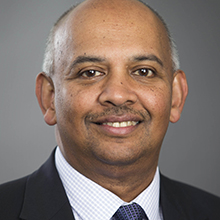
FINALIST: Channa Jayasinha
Channa has led the development of an ICT strategy for Wellington City Council that will not only add value to Wellington City, but to the whole Wellington region. In a relatively short period of time, Channa has managed to get support from other Councils in the Wellington region to work together and leverage ICT assets and capability across the region. This is no easy task given each Council has its own independent leadership.
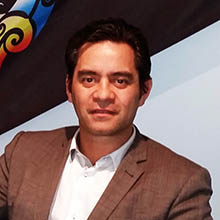
FINALIST: Marcus Lloyd
As the Group IT Manager for Te Runanganui o Ngati Porou, Marcus demonstrated, through a clear ICT strategy, how ICT can make a significant impact on the delivery of the Runanganui's vision across a wide range of businesses and services. Through effective leadership in a complex political environment, effectively leveraging supplier relationships, and smart decision making, he has clearly made significant progress in improving the ICT services and capability for Ngati Porou. But more importantly has shown a way forward for all Iwi across New Zealand as to how ICT can offer value to Maori.
EMERGING ICT LEADER
The Emerging ICT Leader award recognises, celebrates and encourages the exceptional ICT Talent of professionals under the age of 35 years. We are looking for the future leaders of the ICT sector in New Zealand; people who have demonstrated outstanding ICT initiative.
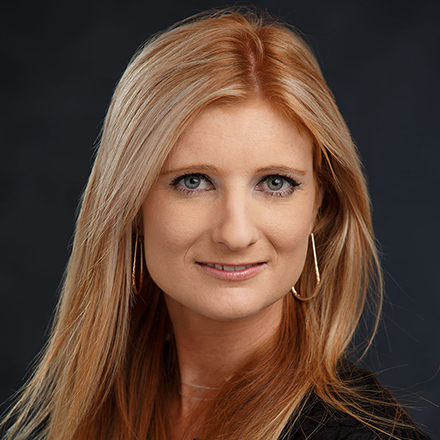
WINNER: Amanda White, ICT Manager, Marlborough Lines
Amanda is the ICT Manager at Marlborough Lines, a utilities company based in Blenheim. In this role Amanda is accountable for the strategic direction and overall management of the ICT department and also directly involved with design, implementation and maintenance of the ICT infrastructure. In particular the judges were impressed with her vision for the future, her way of seeking buy in for her ideas, her ability to write business cases to secure funding, her sound technical skills and her ability to project manage initiatives to fruition. Amanda talked about a SAN implementation and her role in leading a business transformation project. She has just completed an MBA with her thesis on the pros and cons of the public cloud. The Marlborough Chamber of Commerce distributed the outcome of her thesis as an easy to read cheat sheet for Marlborough business to assist them in deciding on whether to use public clouds. Amanda demonstrated drive, commitment and resilience in a challenging environment.
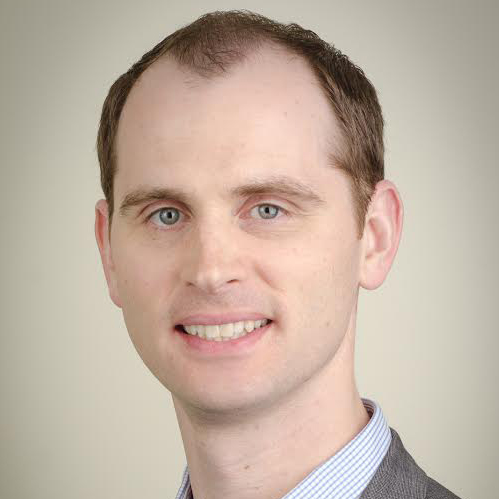
FINALIST: James Bergin, Chief Architect, ASB
James is the Chief Architect for ASB Bank in New Zealand. Based in the Technology & Innovation division, he is accountable for owning and driving the delivery of enterprise-wide architecture and technology strategy outcomes, and for owning the creation and on-going performance of an Architecture centre of excellence.
The judges were impressed with James' leadership skills, ability to read the political landscape and to gain buy-in for the deployment of new technology. He demonstrated these skills in leading the technology architecture and strategy for the creation of the new ASB head office (North Wharf). James was involved in the initial strategic engagement with the Property team, the development and socialisation of architecture deliverables, leading collaboration between the technical teams on matter of design as well as balancing scope, budget and constraints. James is passionate about the use of technology in advancing the goals of the business, he has actively embraced social and new media inside and outside ASB and enjoys his role as Chief Architect at the ASB Bank. He deserves to be a finalist in this award.

FINALIST: John Fitness, ICT Manager, Financials Markets Authority (FMA)
John is the ICT Manager at Financials Markets Authority (FMA). John impressed the judges with his energy, his vision for the future, and his in-depth knowledge of technology. John told the judges about an initiative to secure mobility at the Financials Markets Authority (FMA) where he works as ICT Manager. John initiated and led the project to replace the aging and no-longer fit for purpose Blackberry fleet with a scalable mobility solution. He demonstrated the ability to see the big picture for mobility across FMA and to competently deliver an outcome. There were a wide range of views from the senior team on what devices should be deployed and he came up with a plan to achieve his goal. The judges recognised the challenge John had with this project and applaud him for how he addressed the different view points and ran the project to time and on budget. John is a deserving finalist.
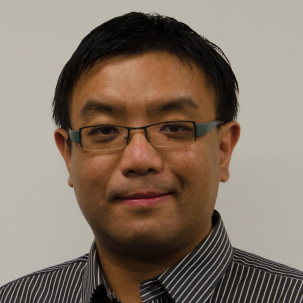
FINALIST: Neil Gong, IS Manager, NZ Management Academies
Neil has a collaborative way of working that impressed the judges. He works for NZ Management Academies as IS Manager and previous to this role he was IT manager at Laidlaw College. At Laidlaw College he rolled out the IT service system and concepts to the property maintenance team. Neil demonstrated his professional and collaborative approach by working with the property, students and staff at the College to roll out a new improved service delivery model similar to the ITIL model used in IT. Neil is modest and demonstrated humility in answering the judges' questions. The judges agreed that Neil is a sound IT manager, professional in his approach as well as genuine and caring.
EXECUTIVE TEAM OF THE YEAR
The Executive Team of the Year Award (for Strategic Use of Business Technology) honours the exceptional teamwork of the executive team in deploying a business technology initiative/s that has/have produced a range of benefits for the organisation.
WINNER: Global Dairy Trade
The judges were impressed by the way Global Dairy Trade’s executive team worked tightly to execute a major upgrade of its online dairy commodity trading platform.
This major overhaul of the company’s core business was completed on time, on spec through a dedication to a common set of objectives, a shared commitment to agile project methodology and efficient decision making.
The team was notable for diverse set of skills, but also its willingness to bring in outside governance advisors from partners including IBM to complement its expertise.
Fonterra and six other sellers on Global Dairy Trade’s multi-trader platform were consulted on the scope of “Project Scala” as the upgrade was known, as were representatives from 700 buyers.
But asking customers for their preferences isn’t always the best source of direction in developing an ICT strategy; they often don’t know what features and functionality they would like until they’ve experienced the system working. Certain aspects of Project Scala’s implementation were therefore defined internally, rather than based exclusively on customer feedback. There was no obvious blueprint, given the uniqueness of the new platform. The judges that the Global Dairy Trade’s executive team had worked cohesively and effectively under this pressure – including a three-month stint of to ensure Scala was ontrack which, notably, occurred mid-project rather than as its go-live deadline loomed.
The judges were also impressed that Global Dairy Trade’s new platform has attracted three new sellers who are expected to join later this year, with more in the pipeline, and by the company’s plans to use the platform to enter new markets.
As one of Global Dairy Trade’s referees put it, “Their value to the NZ economy should not be underestimated. Potentially what they have done is worth billions of dollars to the NZ economy. This is a significant contribution to NZ. Not only did they have the audacity to do it but they managed to pull it off. And the only way they could do it was to have an effective executive team.”
FINALIST: Grabone
The judges were impressed by Grabone’s transition to more team-based decision making process under its new ownership.
Founder Shane Bradley departed soon after the daily deal site was bought by Herald publisher APN.
But despite moving from a startup to a corporate environment, the Grabone team – most of whom stayed through the acquisition – where able to blossom, the judges noted.
Ironically, although APN now sets headline revenue targets, Grabone executives now have more freedom of movement and collective decision making than under their innovative but dominant founder.
The executive team has worked together to create a culture of transparency, where metrics like revenue goals and traffic stats are shared with all 100 staff. And a culture of inclusion where all staff are involved in idea-generation and problem-solving as the company tackles challenges such as its recent recoding of its original platform, an extension of its business into retail coupons, and its audience’s move to mobile.
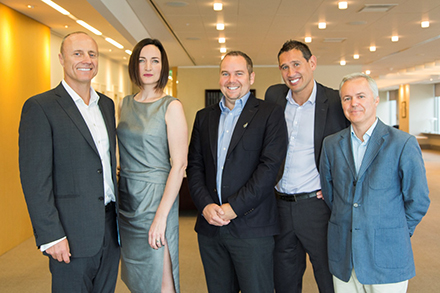
ABOVE: L-R: Serko board members Simon Botherway, Claudia Batten, Darrin Grafton, Bob Shaw and Clyde McConaghy.
FINALIST: Serko
The judges were impressed by the tightknit Serko executive team – co-founders Darrin Grafton and Bob Shaw have worked together at various companies for more than two decades – and their close industry knowledge that has created their disruptive travel software Serko Online.
Serko has focused on the employing on culture first and skills second. Knowing and believing in any individual who shows the right qualities, drive, aptitude, will learn skills and adapt to given, sometimes unique, situations. This has formed the framework for the business where the company has seen less than 2% of staff churn as numbers have doubled to around 100 employees over the past year.
Anyone at Serko can make a difference, from support analysts to finance, all have an opportunity to influence change seeking improvements to our corporate travel market. This was re-enforced by Grant Thornton who completed an IT Audit on Serko in March 2014. They mentioned Serko was one of the best businesses they have seen using the Agile-based development methodology, specifically highlighting the staff being empowered to influence success outcomes.
The executive team was worked closely on problem solving, and identifying and addressing new markets – as evidenced by its success across the Tasman over the past 12 months, notably with energy and resource companies that make heavy use of mass “fly-in/fly-out” bookings.
ENGAGING YOUTH IN ICT
This category showcases outstanding initiatives by private enterprise, public sector or academic institutions that encourage young people to learn about and successfully pursue careers in information technology. The aim is to encourage enterprises to take action to ensure a healthy future pipeline of ICT professionals.
ABOVE: Inside Mind Lab (click to zoom)
WINNER: The Mind Lab by Unitec
The Mindlab by Unitech impressed the judges for carving out a new area of education, then bringing a partner onboard to rapidly develop it.
CEO Frances Valintine founded and successfully grew the Media Design School for 15 years before its recent sale.
Her experience with the company allowed her to hit the ground running with her new venture, The Mind Lab, established in July last year.
The Mind Lab is a multi-disciplinary, specialist technology lab based in Newmarket that provides integrated lab-based workshops across a broad spectrum of digital and technologies for students including coding, 3D modelling, 3D printing, robotics, programming, game development, 3D graphics, film effects and animation. The Mind Lab is focused on raising access to, and understanding of, 21st century technologies that are shaping our lives.
Over a five-month period 3000 students from over 60 schools have attended classes at The Mind Lab, experiencing the private educator’s “learning by doing” approach, and teachers from 30 schools attended development days.
In the beginning, Ms Valintine drew from her own savings, and corporate partnership with HP, but made a conscious decision not to seek government funding, the better to maintain the freedom to independently develop The Mind Lab’s curriculum.
But the CEO was also concerned at a trend she had noticed over the past five years: a decline in high school students’ capability over the past five years.
At first she put it down to NCEA issues. But her early experience with The Mind Lab helped resolve her view that many schools were still running on what she calls an analogue 1950s model. Teachers often had access to new technology, but not an understanding of its how it was shaping our future.
Over the Christmas break she brain-stormed ways to change the mindset in secondary schools. She decided that The Mind Lab’s development days for teachers needed to be kicked up a gear – and in fact many gears.
In early January, she took a proposal to Unitec to teach ICT skills to 10,000 existing teachers within five years – the number Ms Valantine estimates is necessary to trigger a “critical shift” in thinking across the 60,000-strong profession.
Unitec took a 50% stake in The Mind Lab in April.
A new teacher qualification delivered by The Mind Lab by Unitec, the Postgraduate Certificate in Applied Practice (Digital and Collaborative Learning), is due to be introduced in July.
The 32-week course will be an intensive experience, with four hours a week at The Lab plus eight hours online over the first 16 weeks.
The judges were impressed by Ms Valintine’s ability to develop a new opportunity to engage youth in ICT, and the passion, political skills and education industry savvy that allowed her to identify what was necessary to further develop the The Mind Lab, then turn her ideas into reality with remarkable speed.
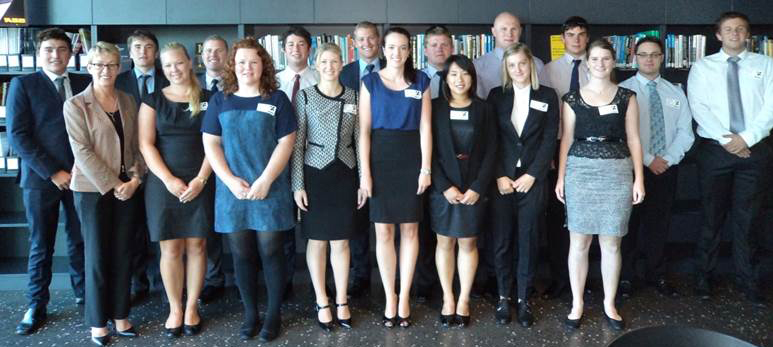
ABOVE: ASB Bank CEO Barbara Chapman (second from left) with graduates on ASB Banks' Future Me programme.
FINALIST: ASB Bank
ASB Bank has developed three initiatives to engage youth in ICT.
The first is The Future Me Graduate Programme, which had its first intake in early 2011, gives graduates experience at ASB in a customer-facing role and a risk business unit – plus the opportunity to be mentored by senior staff.
The second is the ASB Summer Project Management Internship, which provides the ASB with guest lecturer opportunities at AUT University, and an AUT student awarded a summer internship valued at $7,000.
The third sees the bank supporting an Auckland University Business School information systems course initiative that sees teams of three students pitching project ideas to ASB and other companies. The teams then work within the organisation through the academic year delivering all aspects of the initiative – from business analysis to project management to software design & development to testing.
The judges were impressed by ASB’s energetic initiatives to address the skills shortage by reaching out to our two largest universities, and by taking advantage of opportunities to foster inhouse talent – such as plucking standout members of its call centre team and giving them the opportunity to tackle more advanced ICT roles.
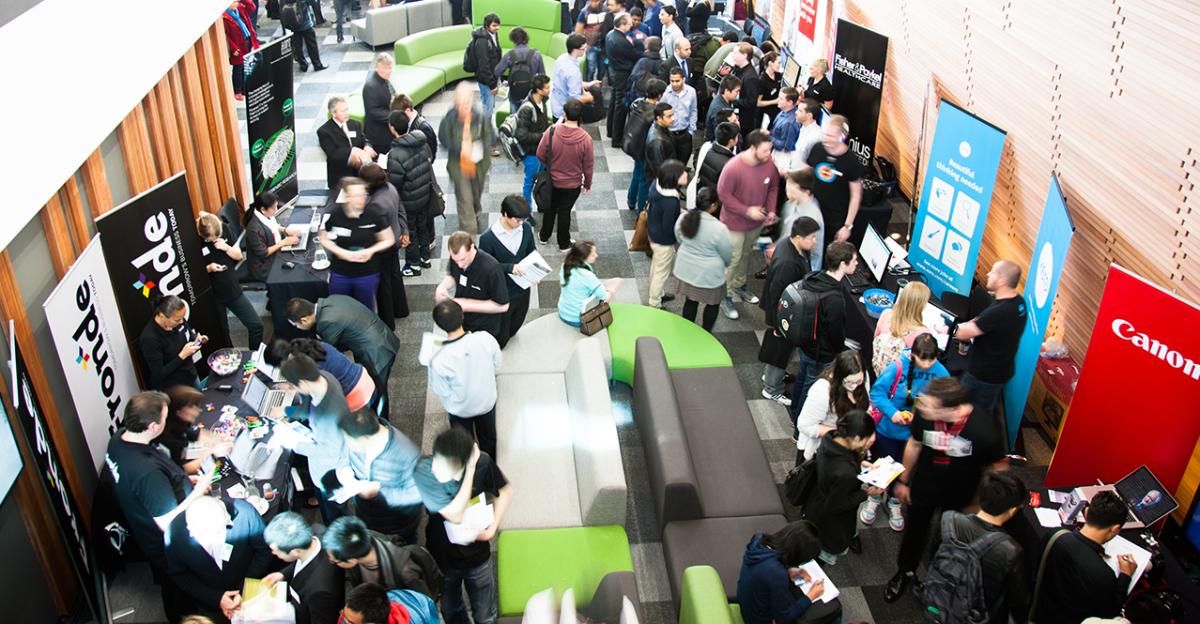
ABOVE: One of AUT's biannual ICT fairs.
FINALIST: AUT University - ICT Industry Outreach Programme
AUT University’s ICT Industry Outreach Programme was developed to foster partnerships between staff, students, alumni, high schools, local and central government and partners in business.
The project was initiated after AUT’s own research in 2011 and 2012 found that high school students knew little about the engineering, computer and mathematical sciences pathways the university offered, or important links with careers in the ICT sector.
Our own research in 2011 and 2012 told us high school students knew little about the engineering, computer and mathematical sciences pathways we offered or their important links with careers in the ICT sector.
AUT approached ICT companies to meet with IT managers and recruitment teams to gain insights into their businesses, and learn what they need and want from a university.
The result was a series of initiative that includes a biannual ICT fair backed by companies including Xero, Fronde, Gen-i and Orion Health; an expanded R&D partnership programme that has seen 201 students work on real life projects at 69 companies; and a summer project management internship programme at ASB Bank.
The judges were impressed by AUT’s efforts to engage industry, lift student numbers in its target disciplines and develop successful intern programmes that have led to students being placed in high value jobs. The panel also appreciated the university’s plans to further expand the focus of the outreach programme over the next 12 months.







